Harnessing the antibacterial potential of fatty acids
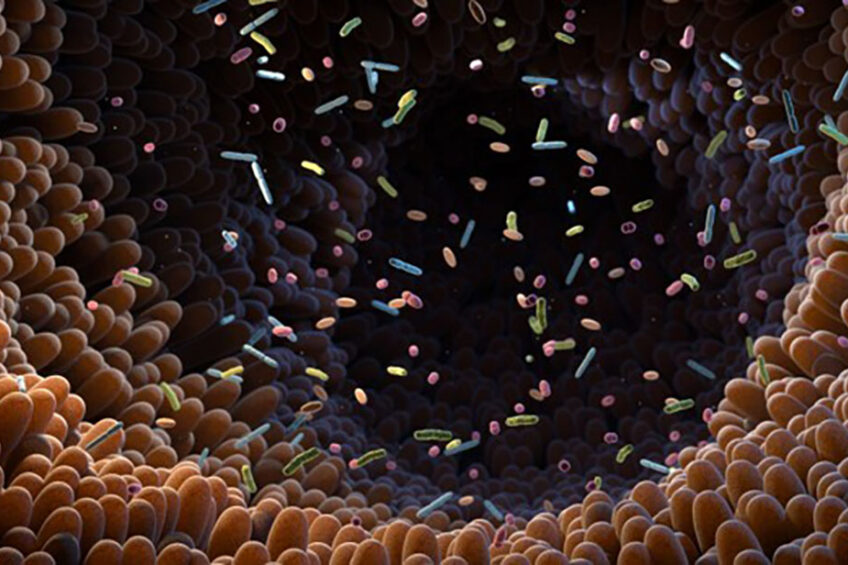
Piglets are weaned at a time when their digestive tract and immune system are still immature. Weaning exposes piglets to new environments and pigs from different litters. In addition, the stress causes the dysbiosis of gut microbiota, and further increases the risk of gastrointestinal diseases. Consequently, antibiotic treatments were typically used to maintain animal health and productivity but the increasing resistance of pathogens, as well as regulatory restrictions, have accelerated the demand for alternatives.
Weaning induced intestinal dysfunction
Weaning is associated with an early inflammatory response that may contribute to both anatomical and functional intestinal disorders in piglets. Pié et al. (2004) demonstrated the impact of early weaning on the mRNA expression of inflammatory cytokines, divided into an early acute response (0 to 2 d postweaning) and a late long-lasting response (2 to 8 d postweaning). While in the early acute phase mRNA expression of pro-inflammatory cytokines rapidly increased, the level of cytokines dropped in the late phase, indicating the adaptation of the piglets. At the same time gut morphology showed a long-lasting damage to intestinal morphology and function. A long-term damage to the gut barrier function was confirmed by Hu et al. (2012). The authors found an effect of weaning stress on tight junction proteins, which have not recovered 14 days after weaning. These changes in intestinal structure and function after weaning, are mainly manifested by villous atrophy and crypt hyperplasia (Figure 1) leading to a decrease in the ability to absorb nutrients, as the small intestinal villi are the important site for nutrient absorption.
Figure 1- Negative impacts of weaning stress on swine gut health.
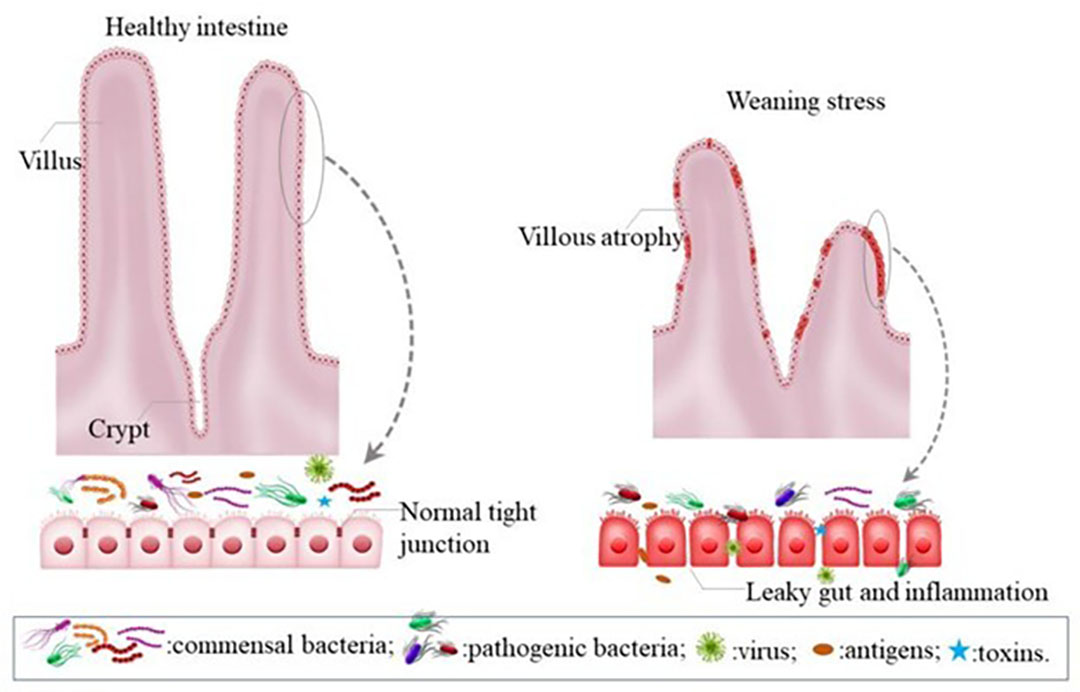
1Wei, X.; Tsai, T.; Howe, S.; Zhao, J. Weaning Induced Gut Dysfunction and Nutritional Interventions in Nursery Pigs: A Partial Review. Animals 2021, 11, 1279.
Butyric acid derivatives have demonstrated a clear benefit to intestinal development. The major end products of the fermentation of non-digestible carbohydrates by microbes are short-chain fatty acids (SCFAs) such as butyrate, propionate, and acetate. SCFAs serve as energy sources for both host cells and intestinal bacteria and modulate host metabolic responses. Butyric acid derivatives are known to have antimicrobial, anti-inflammatory, and antioxidative effects that are important for maintaining gut health and improving the barrier function. An addition of butyric acid glycerides via feed could assure continuous availability throughout the digestive tract.
Eastman trial results in weaning piglets demonstrated significant beneficial effects of butyric acid glycerides on inflammatory markers. Recent trial data confirmed the positive impact of mono-tri-butyrin (MTB) on growth performance of weaned piglets (Figure 2).
Figure 2- Impact of mono-tri-butyrin (MTB) on growth performance of piglets.
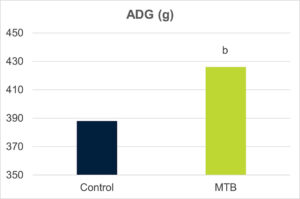
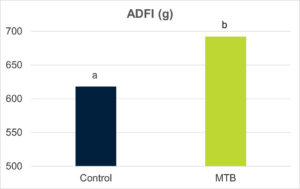
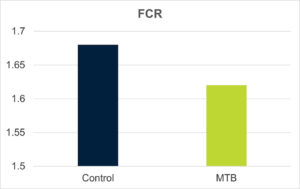
Impact on intestinal microbiome
Weaning stress can lead to dysbiosis of the gut microbiota in piglets, which refers to an imbalance or disruption in the composition and function of the microbial community in the gut. The intestinal microbiota is involved in nutrient metabolism, immune system development, epithelium integrity, and protection against pathogens. Dysbiosis can further increase the risk of gastrointestinal diseases in piglets.
The intestinal environment of weaned piglets is susceptible to invasion by pathogenic microorganisms such as Escherichia coli, which stimulates the intestinal mucosa to secrete inflammatory factors and damage the function of the intestinal mucosal barrier.
While antibiotics can help control and treat bacterial infections, they can also lead to the emergence of antibiotic-resistant bacteria and a reduction in the diversity of beneficial bacteria in the gut. These so called “adverse effects” of antibiotics increase the risk of new infectious diseases.
Take a look at this video to find out more about gut health strategies from Eastman
Antimicrobial properties of mcfa and mcfa-glycerol esters
The use of compounds with antimicrobial properties has gained increasing interest in various industries, including the livestock industry. Monoglycerides of medium-chain fatty acids (MCFA-MG) have been shown to disrupt the lipid membranes of pathogens, making them effective against a wide range of pathogenic bacteria and membrane-enveloped viruses. Fatty acids and monoglycerides mainly exhibit membrane-disruptive properties in their micellar form above their corresponding (critical micellar concentration) CMC values. Overall, antimicrobial lipids like MCFA-MG have emerged as promising options for addressing the challenges posed by viruses and bacteria in the swine and poultry industries. Their membrane-disruptive properties, broad-spectrum activity, and potential to combat antibiotic resistance make them an area of active research and interest in the livestock industry.
Fatty acids have an important role to play
To significantly reduce the need for antibiotic treatments, the presence and growth conditions of pathogenic microorganisms must be controlled on the one hand and, even more importantly, appropriate nutrition must be provided, minimising stressors, and ensuring a smooth transition for the piglets to support their health and well-being. Fatty acids and their monoglycerides have interesting antibacterial properties that can play an important role in nutritional strategies.
References are available on request.
 Beheer
Beheer

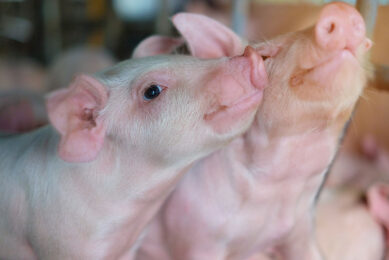
 WP Admin
WP Admin  Bewerk bericht
Bewerk bericht